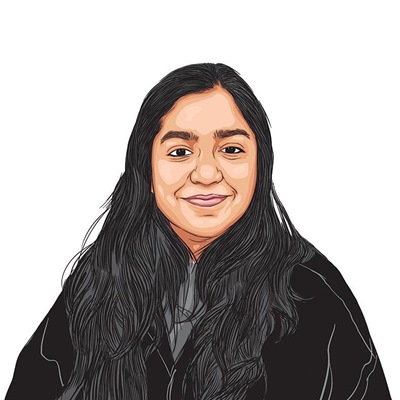Opinion The bitter message of ‘Kaala Paani’: Not all lives matter
How do you react when your government sees you as a threat to be contained rather than a citizen to be protected?
 Although Kaala Paani on Netflix is a work of science fiction, it feels all the more real after the Covid pandemic. (Netflix/YouTube)
Although Kaala Paani on Netflix is a work of science fiction, it feels all the more real after the Covid pandemic. (Netflix/YouTube) The year is 2027. Leptospiral Haemorrhagic Fever (LHF-27), a lethal waterborne disease, has been discovered in the Andamans. Lieutenant-Governor Qadri, head of the Andaman and Nicobar Islands’ administration, meets with the healthcare officials who say they have a “potential epidemic on their hands”. The L-G springs into action. He orders pocket lockdowns, rapid testing, isolating the non-infected population, shutdown of routes in and out of Port Blair. But most importantly, he says, “Whatever has been discussed here should not go out of this room.”
At the time, he already knew something we did not — all human lives are not equal, especially in the eyes of the government. Although Kaala Paani on Netflix is a work of science fiction, it feels all the more real after the Covid pandemic. But even then, for citizens of a democratic nation, the expectation was that the government would work in the best interest of citizens. Quarantining was a measure to both heal and shield others from contracting the illness. In the show, however, it was horrifying to see that even as the quarantining was meant to save a larger population, the “mainlanders”, it was very much at the cost of not only those infected but those unfortunate enough to be in the wrong place at the wrong time. The lives of those on the islands, then, was worth much less — almost dispensable. They were relegated to second-class citizens and cast aside to fend for themselves.
There is a clear demarcation between the islands and the rest of the country. There is a sense of unease, of foreboding, of knowing that those on the islands will not be provided the same amenities and facilities because there is only so much sea and air travel possible. And they cannot be let out of the islands because, for a few lakh people, crores of other lives cannot be put in danger. The “Kaala Paani” threat from British times – of being imprisoned in Circular Jail — seemed to have come full circle.
For many on the mainland, the notion that your own home can be a threat is unimaginable. The anxiety of feeling stuck, dependent and less-than is explored deeply through the plight of stranded tourists and residents who have nowhere to escape to. In one scene, a crowd is gathered by a glass door, waiting and watching a flight attempt landing right in front of them, but at the last minute it turns its wheels back in and it zooms off — leaving them behind on the island plagued by a deadly disease. Never can you or your life feel less valued than in that moment.
Kaala Paani unearths the fears of a community that has long felt abandoned and with characters representing different walks of life, viewers are able to imagine themselves as a part of this situation. You could be a tourist visiting with family who has been cut off from them because of the one day you decide to explore on your own, or someone with roots on the island coming to visit after many years, or even a police officer or healthcare official sent to handle a matter that the mainland people have yet no grasp of. It underlines this feeling of displacement and uneasiness — portraying very well the disparity that exists between the Andaman and Nicobar islands and the rest of India that is invisible to those of us who have had the privilege of being mainlanders.
It is one thing to watch horror/thriller content where lives are in danger and quite another to experience it so up close — and with those who are meant to safeguard your rights, leaving you high and dry. In that moment, human beings will be and are pushed to their very limits, because how do you react when your government sees you as a threat to be contained rather than a citizen to be protected?
adya.goyal@expressindia.com





